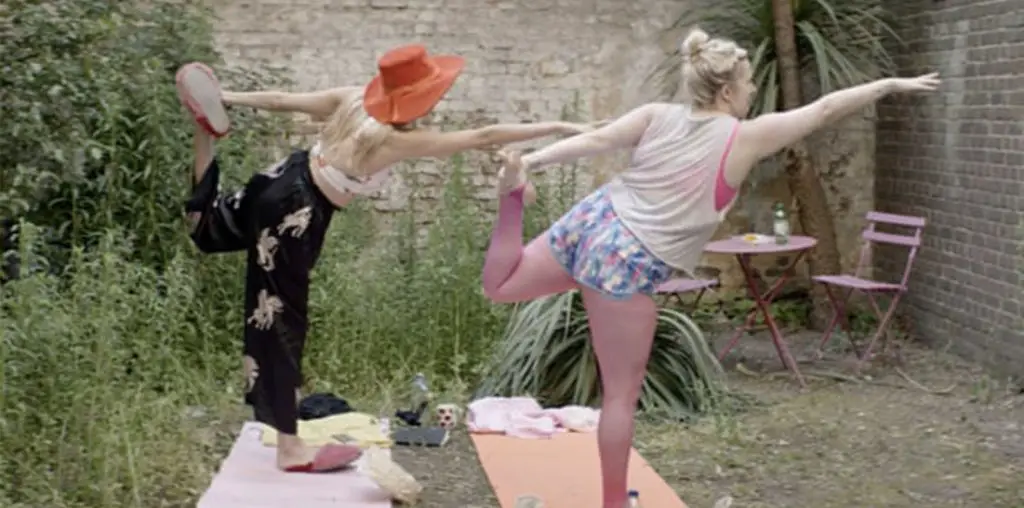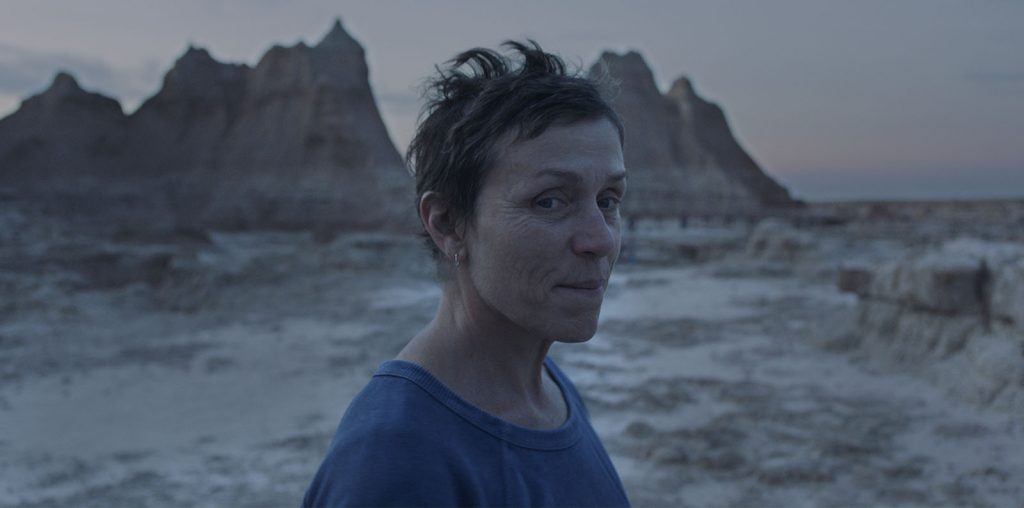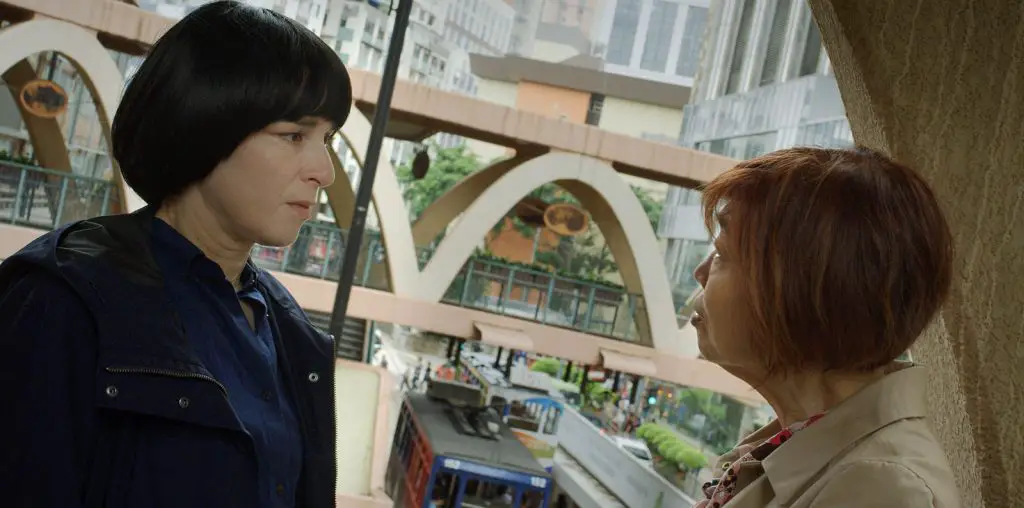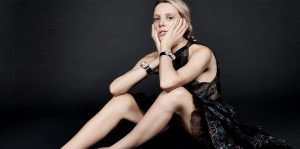
Greta Bellamacina is a multi-hyphenate. She’s an actress, poet, producer, director, and model, as well as being a mother and a wife. Her first feature film, Hurt By Paradise, really stuck with me. It is about an actress and a poet trying to make it in their respective fields while also battling their personal demons. At the end of the day, the movie celebrates female friendships, which I personally think doesn’t happen nearly as often as it should. Here you’re a fly on the wall for the great conversation I had with Greta about Hurt By Paradise, poetry, COVID-19, Jim Jarmusch, and more. Read on!
Could you tell us about the genesis of the project that became Hurt By Paradise?
Greta Bellamacina: I started writing the film with another writer called Sadie Brown, who also in the film, she plays Stella. We basically wanted to write a story about two women. From the outside, we have Stella trying to find her online lover and Celeste trying to find her absent father. Actually, it becomes a kind of love letter to each other, almost by mistake. We wanted to write a film about two women desperately trying to find ways to achieve their dreams but actually failing. They come together and find each other, and that’s their saving grace. That was the starting point. We started off writing a lot of vignettes and scenes. We were thinking about the characters, and we really wanted to paint a sort of snapshot of these women’s lives, rather than the plot being the driving force. You have the intensity of their lives, and the plot is revealed later on.
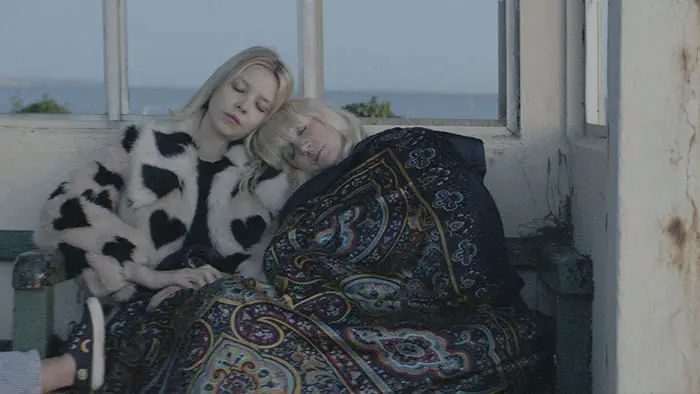
“You have the intensity of their lives, and the plot is revealed later on.”
You do a lot of things. You’re a poet, director, and model, etc. Would you say that your inspiration to do these things come from the same place, or do you feel differently about each thing, and is it a different type of mental process?
No, it definitely is. I came from an acting background and went to drama school, and I’ve always been a part of some kind of youth theater. I’ve always felt very comfortable performing characters, but poetry has always been something I’ve done in private. I’ve always found poetry a lot harder to perform. Somehow when I write poetry, I end up reading it to myself out loud and taking on another voice. So I think putting the two together in this film was a big experiment. So I definitely feel like it comes from two different places, but I definitely think there’s a duality to performing poetry because, for me anyway, I end up taking on different characters. A lot of the time, when I’m writing poetry, I find performing it is a really good way to edit my work. So, I think it’s definitely a different process, but I was eager to put poetry in a different space and see if it could make the world feel more alive.
I wondered because when I write poems, it’s a completely different thing than writing a screenplay or writing reviews. It’s very compartmentalized into how the brain works, and I don’t know how other people think about these things.
No, I totally agree. Especially when we were writing the screenplay, it’s a lot more trying to understand these women and why they might do certain things and show flawed women, but then you kind of have compassion for them. They take on certain roles without really explaining why. Whereas with poetry, I feel like it’s a bit more urgent, and the editing process is totally different. It’s a bit more mystical, more about finding enough light and shade and brokenness to bring out into the world. Whereas with writing a screenplay, it was very much trying to ground it as much as possible and write something that felt like a documentary almost.
